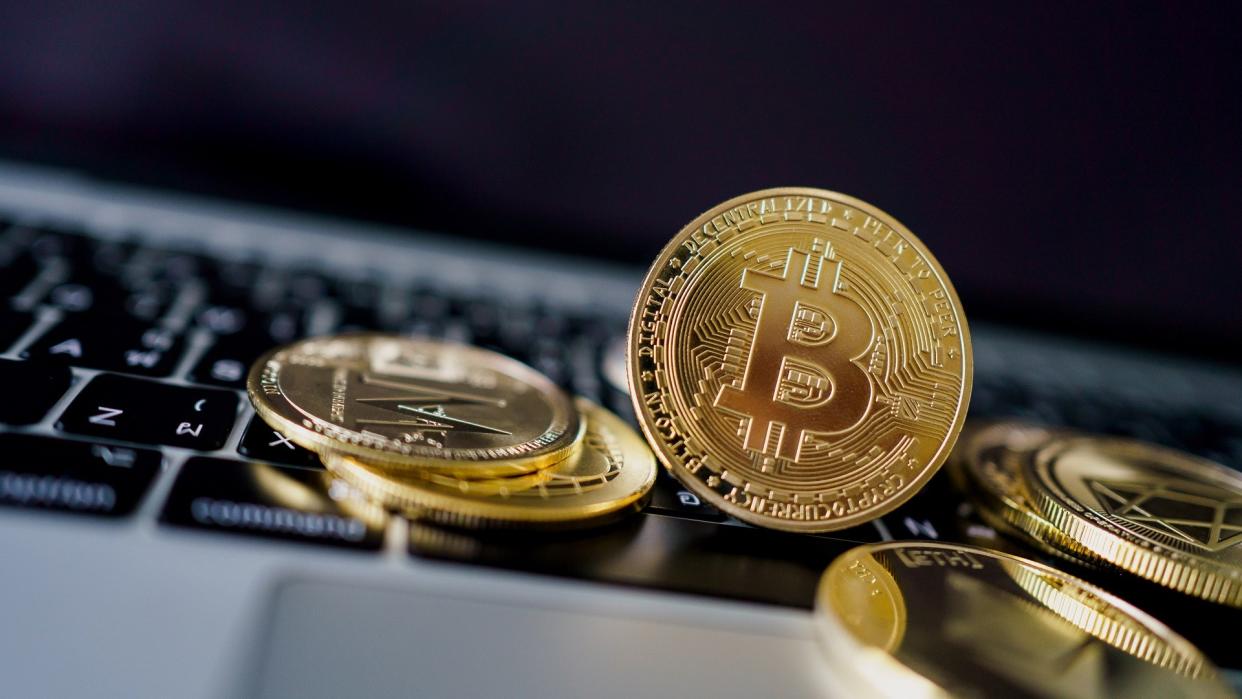Safest Ways To Hold Cryptocurrency in 2023

The past year was the most brutal on record for cryptocurrency traders. Prices cratered industry-wide in what came to be known as the crypto winter and several high-profile scandals shook the public’s faith in digital tokens, their value as an investment and the ability to keep them safe.
Read: 5 Things You Must Do When Your Savings Reach $50,000
If you’re considering investing in digital assets in 2023, or if you already own some but are worried about security, you may wonder what is the safest place to hold crypto?
What Is the Safest Place To Keep Crypto?
The safest place to hold crypto is in a hardware wallet. It’s not the only option — you can also store digital assets in software wallets and centralized exchanges. There are pros and cons to each, and it’s important to know what they are and how they work before you make up your mind.
In all three cases, the term “wallet” is misleading because your tokens aren’t actually stored inside. Crypto wallets contain the keys that allow you to access, view and manage your holdings where they live on the blockchain.
Where You Should Not Keep Your Cryptocurrency
Forbes recently highlighted a few bright red flags from FTX’s recent wallet failure that novice crypto investors might not have known to look out for. The most egregious breach of protocol was the fact that FTX allowed users to make transactions without a private key. Every wallet contains a public key for receiving cryptocurrency, like a bank account number, and a private key that matches the public key address that serves as a password. FTX held its crypto in the public FTX address and secretly controlled the private keys that should have been in the sole custody of their users.
Never store your crypto anywhere that doesn’t afford you sole control over your private keys.
Centralized Exchanges Are the Easiest and Least Secure
Centralized exchanges are a type of hot wallet — which means it’s connected to the internet — that crypto exchanges offer as an integrated feature. Newcomers gravitate toward them because they’re easy to set up, they’re built right into the exchanges where they buy their first coins and they’re often free to use.
More experienced users avoid them because both the web connection and the computer used to access it are vulnerable to hacking, viruses and malware. As custodial wallets, centralized exchanges require users to trust third parties to secure their private keys.
According to Forbes, FTX issued exchange-based wallets that ignored the most basic principles of crypto security and transparency while misleading coin holders about their level of protection and control. According to NPR, more than 1 million people lost some or all of their money when FTX froze their accounts and declared bankruptcy.
If you do decide to store your holdings where you trade them, Coinbase and Binance are two of the biggest exchanges and host two of the most popular hot wallets.
Software Wallets Are Hot But More Secure Than Exchanges
Software wallets are also connected to the internet, which means they have the same vulnerabilities as exchange wallets — but you don’t have to worry about an exchange getting hacked or imploding into bankruptcy. They’re software applications that you download to your phone or PC to provide an interface to access your private keys. Like centralized exchanges, most software wallets are custodial wallets, which means you have to trust a third party to secure your keys. The tradeoff is that the user has less responsibility and software wallets can be more convenient than more secure alternatives.
Among the most popular software wallets are ZenGo, a free mobile wallet with unique security features, and Trust Wallet, a non-custodial digital wallet that supports more than 1 million assets. Kraken is also among the most trusted and highly rated options.
Is It Better To Keep Crypto in Coinbase or Trust Wallet?
A software wallet like Trust Wallet is more secure than a centralized exchange wallet like the kind that Coinbase offers. Neither of them, however, can provide the level of security that comes with cold storage.
Hardware Wallets Offer the Highest Level of Security
Hardware wallets, or cold wallets, are physical devices that store your private keys offline and keep them solely under your control. They are not susceptible to viruses or hacking. They are the most expensive option and you can’t access your holdings unless you have the device with you. They also tend to be more complex and require extra steps to set up, but the tradeoff is that they are virtually invulnerable.
The Ledger Nano X and Trezor Model T have dominated the industry for some time, but a new contender, NGrave, has climbed toward the top of most industry analysts’ best-of lists.
Where Is the Best Place To Hold Your Crypto?
Your crypto is safest in cold storage in an offline hardware wallet. The top software wallets tout their military-grade security features, and many have earned high marks from industry analysts. But in the end, software wallets are only as secure as the device you use to access them.
Many investors can lose everything if they rely on the company to keep their assets safe. But it’s up to you to follow the standard best practices for managing cryptocurrency safely. Never keep your tokens on an exchange for any longer than necessary. If you choose a software wallet, beware of phishing scams, always use two-factor authentication and proceed with the assumption that your device can be compromised. If you invest in a hardware wallet, choose a pin that no one can guess and never put your 24-word recovery sheet online.
Information is accurate as of Jan. 3, 2023.
This article originally appeared on GOBankingRates.com: Safest Ways To Hold Cryptocurrency in 2023
